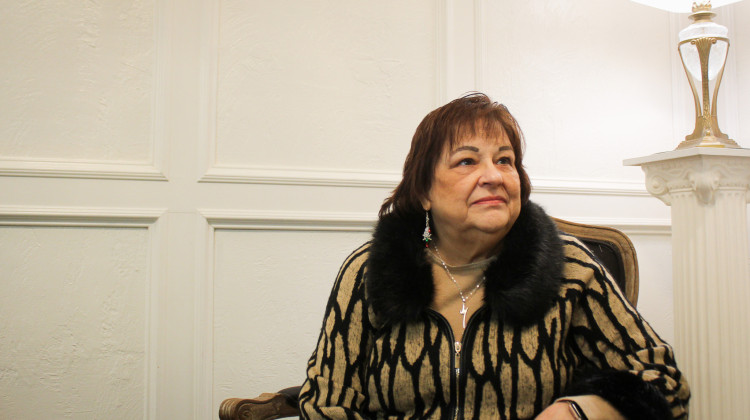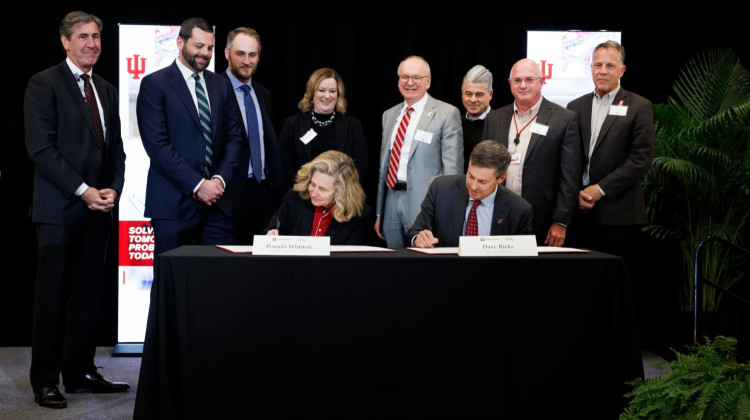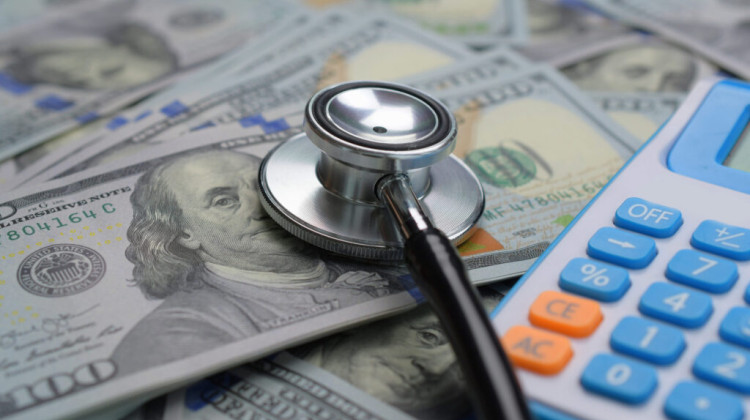
Kit for testing patient specimens for virus that causes COVID-19.
Provided by Centers for Disaese Control and Prevention
IPB News/All IN
Side Effects has received many questions seeking medical information about the new coronavirus and the disease it causes: COVID-19. For answers, we turned to Tom Duszynski, an epidemiologist with the Richard M. Fairbanks School of Public Health at IUPUI, and Ram Yeleti, chief physician executive with Community Health Network.
(This is the second set of questions from the March 11 All IN show from Indiana Public Broadcasting.)
Are there ways to boost one's immune system to help fight the spread?
YELETI: What I would say is you have to as long as you're eating a healthy to normal diet, that's all we can do. … And the reason it's also important that a lot of people get this false sense of security. I'm taking my zinc and vitamin D and vitamin E, so “I'm in great shape, so I don't need to worry about it.” So people tend to think that they're safe if they do certain activities like that. We have no proof of that.
If you catch the coronavirus, once you're over it are you immune?
YELETI: Most likely, yes… Once you have the symptoms of fever, cough and cold 24 hours after symptoms are free, you're actually immune to it. So that is true.
What specifically is a treatment plan?
YELETI: I think this is the biggest thing people don't understand. We have no treatment ... no cure, no antiviral, no antibiotic. There is nothing that will get rid of the COVID-19 except your own immune system. So if you're young and healthy, your body will fight it, you'll get the symptoms and you recover just like a regular cold. If you're 80-years-old and have lung disease, you won't be able to fight it. Your system can't fight it.
We have no treatment, there is no treatment, no cure, no antiviral, no antibiotic. There is nothing that will get rid of the COVID-19 except your own immune system.
When should people reach out to be tested? And how do they do it?
YELETI: So first and foremost, we have almost zero tests in the state of Indiana. The only people getting tested right now are if you're hospitalized in the ICU, or if there's a very, very high risk, we have very few tests… But simply going to your doctor -- even if your doctor writes an order, ‘you need a COVID-19 test’ does not mean you're going to be getting it.
We have almost zero tests in the state of Indiana. The only people getting tested right now are if you're hospitalized in the ICU, or if there's a very, very high risk.
How close are we to a vaccine? And how much do we actually know about the virus?
DUSZYNSKI: I've heard different stories about other companies developing vaccines. The development part isn't necessarily what's taking the longest ... The part that's going to take time is these community trials, right? We have to make sure the vaccine is safe, that it does what it's supposed to do in a population.
YELETI: So the vaccine at the earliest 12 months, likely 18 months from now. There'll be no vaccine in 2020. That's just because of the studies that need to be done.
Do our state health officials get information from their counterparts in California and Washington, specifically whether or not citizens self-quarantining is the most effective way to limit exposure?
DUSZYNSKI: So every state does public health their own way… . But the good news is states really, especially in things like novel disease emergence, they tend to communicate. It benefits everybody if we could communicate. I looked back in 2003 when the SARS outbreak occurred, information coming out of China wasn't nearly as robust as what it is today coming out of China, which really enhances the public health’s ability to detect something.
What can we learn from what's happening in northern Italy?
DUSZYNSKI: We're watching what the population is and how they're responding to this, you have to remember that parts of Northern Italy especially are much older than the U.S. even. So they're at higher risk, but that helps us as epidemiologists, we look at trends in populations, and we assess risk based on those trends in the population. So it's helping us determine who's at most risk in the USA.
NOTE: Statistics may have changed since this show aired on March 11.
This story was produced by Side Effects Public Media, a news collaborative covering public health.
 DONATE
DONATE







 Support WFYI. We can't do it without you.
Support WFYI. We can't do it without you.